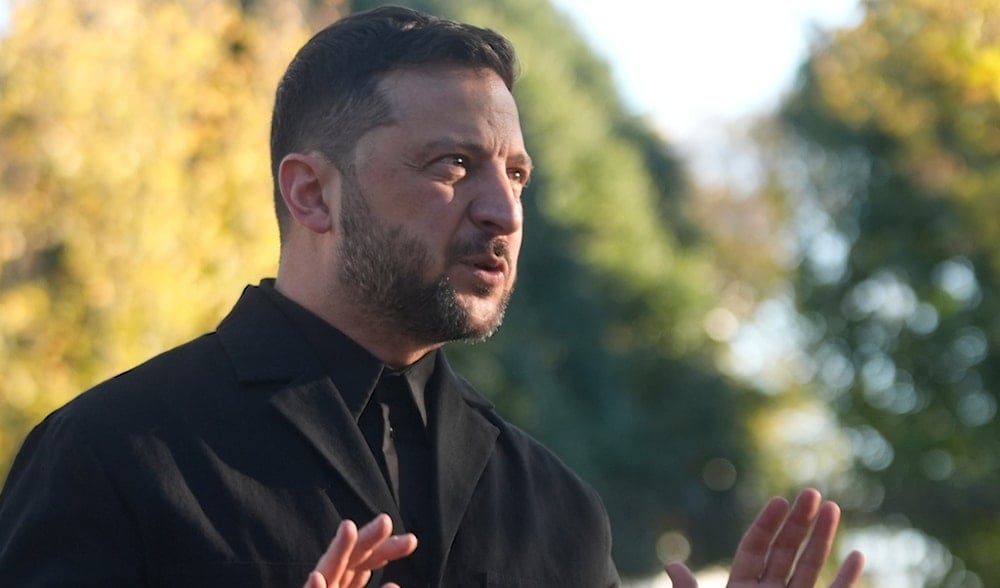Zelensky 'ready' to join Putin-Trump talks in Budapest
Ukrainian President Volodymyr Zelensky told NBC he’s ready to join Trump and Putin at a Russia-US summit in Budapest, expressing frustration over Ukraine’s exclusion from peace negotiations.
-

Ukraine's President Volodymyr Zelensky speaks to reporters in Lafayette Park across the street from the White House, following a meeting with President Donald Trump, Friday, Oct. 17, 2025, in Washington. (AP)
Ukrainian President Volodymyr Zelensky offered to join US President Donald Trump and Russian President Vladimir Putin at a potential Russia-US summit in Budapest, he revealed in a recent interview, expressing frustration over Ukraine being sidelined from peace talks.
Speaking to NBC’s Meet the Press, Zelensky stated, “If we really want to have just and lasting peace, we need both sides of this tragedy… How can there be some deals without us about us?” The interview was recorded on Friday.
When asked whether he would push to be included in the upcoming meeting in Budapest, Zelensky confirmed he had directly told Trump: “I'm ready.”
The comments followed reports that Trump and Putin had a phone conversation on Thursday, during which they discussed the situation in Ukraine, among other issues. Trump later revealed his intention to hold a personal meeting with Putin in Budapest, the capital of Hungary.
Ukraine pushes for inclusion
The proposed Trump-Putin meeting in Budapest would mark a notable development in US-Russia diplomacy, as Washington shifts its posture in relation to the war. However, Zelensky's plea underlines the growing unease in Kiev about being sidelined as broader negotiations begin to take shape.
Trump had confirmed the possibility of Budapest talks with Putin, and stated his desire to hold similar but separate meetings with Zelensky.
He later met with Zelensky in Washington for discussions, which Axios described as "tough." During the talks, Trump reportedly told Zelensky that the United States would not provide long-range Tomahawk missiles, arguing that such weapons risk escalating the conflict and depleting US stockpiles.
Trump's hesitation over the Tomahawk cruise missiles, which Ukraine had sought to strike deep into Russian territory, represents a major shift from Washington's earlier tone. In recent months, Trump had publicly floated the idea of sending the weapons if Moscow resisted peace efforts.
However, after a phone call with Russian President Vladimir Putin and ahead of a potential Budapest summit, the White House opted for restraint, citing fears that such deliveries could trigger direct US-Russia confrontation.
Read more: Medvedev rejects Trump's idea of dual victory in Ukraine conflict

 2 Min Read
2 Min Read









